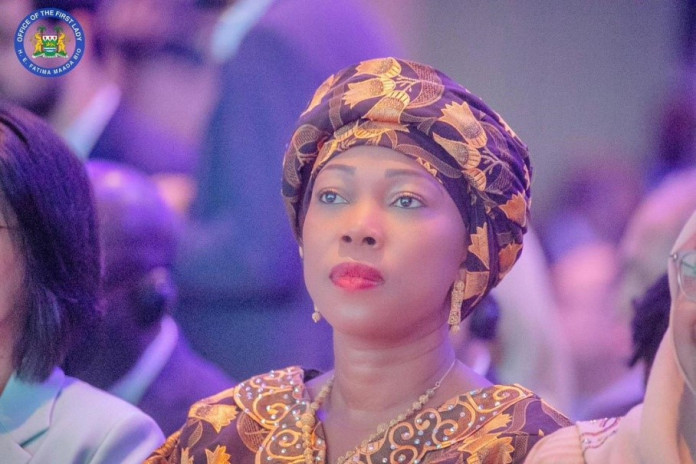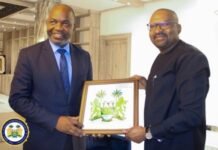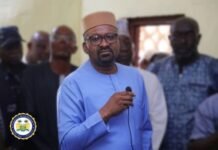Her Excellency Dr. Fatima Maada Bio, the First Lady of the Republic of Sierra Leone, addressing the ongoing 28th United Nations Climate Meeting, known as the Conference of Parties (COP) in Dubai, United Arab Emirates, emphasized the critical link between climate change adaptation and the path to achieving food security.
The UN Conference serves as a platform for constructive discussions among Governments and citizens to strategize on mitigating and adapting to the challenges posed by climate change. H.E Dr. Fatima Maada Bio underscored the urgency for countries like Sierra Leone to address this pressing issue.
Sierra Leone is identified as one of the most vulnerable and severely affected countries by climate change, making it imperative for the nation to confront this reality head-on. Dr. Fatima Maada Bio highlighted the alarming consequences, citing instances of devastating mudslides in 2017, annual flooding in cities despite mitigation efforts, and rising sea levels threatening beaches.
In rural communities, adverse effects on domestic food production were emphasized, with rivers drying up and unpredictable rainfall patterns impacting agriculture. Water scarcity has reached record levels, requiring deeper wells in several communities. Dr. Fatima Maada Bio highlighted the surge in insect populations due to drying grasslands, posing threats to crops and public health, particularly affecting women and children and driving some into extreme poverty.
The First Lady emphasized the shrinking grazing areas for domestic animals, leading to increased conflicts between cattle herders and farmers, resulting in migration and the abandonment of once-profitable livelihoods. Climate change-induced poverty has forced some individuals to resort to charcoal burning, accelerating deforestation.
Dr. Fatima Maada Bio commended President Bio’s efforts in education, social justice, and the promotion of women’s and girls’ rights. Recognizing the impact of climate change, President Bio established the Ministry of Environment and Climate Change, along with a special Presidential Initiative on Climate Change, Renewable Energy, and Food Security.
The First Lady emphasized the need for collective effort and prioritizing national-level discussions on climate change. She called for engaging farmers in climate change adaptation techniques, establishing women-led farming initiatives, providing environmentally friendly irrigation systems, and developing a comprehensive framework that includes youth groups, teachers, and religious and traditional leaders for more impactful and sustainable efforts.




